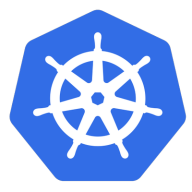

Find out what your peers are saying about Microsoft, Amazon Web Services (AWS), Akamai and others in Infrastructure as a Service Clouds (IaaS).
We receive revenue and returns from its deployment due to improved services and applications.
I have seen a return on investment, and the metrics in return for the investment are very fast.
They were very responsive to my issue.
They respond with relevant and easy-to-follow solutions.
The application is stable, and I seldom require support.
For my usage, which is a small business, I rate the scalability of Akamai Connected Cloud (Linode) around nine or ten.
By using horizontal pod autoscalers, Kubernetes automatically adjusts the number of pods based on CPU, memory usage, or other metrics.
Kubernetes is highly scalable, earning a rating of eight out of ten.
Kubernetes is a scalable platform, which is why we are using it.
Our organization performs robust testing before sending changes to production, ensuring the stability of Kubernetes in live environments.
If any containers take more space, sometimes the cluster goes down.
Kubernetes offers high stability, allowing for easy scaling of ports and containers.
The main area for improvement is the lack of a backup feature to the local hard disk or storage.
The main improvement I would like to see from Akamai Connected Cloud (Linode) is the ability to duplicate the server as it is and initialize a new one with the same features.
It would be useful to have the option to sort or group by tags on the domains page.
After the upgrade, some pods were not up as expected, leading to downtime.
Improved documentation would help in gaining scalable knowledge and making it more understandable.
There is room for improvement in this area, as Kubernetes could benefit from having more integrations, such as for scanning vulnerabilities.
I always receive more features for the same price.
the setup costs are high.
Since we use Kubernetes on-premises, the costs are related to our expertise and the personnel we hire.
Akamai Connected Cloud (Linode) is easy to use and has a fair price, making it accessible and straightforward, which is crucial when compared to other complex solutions.
Their support is really good. I can ask anything at any time, and they are able to resolve issues like reinstating deleted Linodes.
Akamai Connected Cloud (Linode) is cheaper.
Kubernetes also offers rollback control and auto-scaling capabilities, which are crucial for maintaining an application's availability even if nodes or pods go down.
For us, having fast storage classes is very important.
The positive impact has manifested in fast deployments and reduced downtimes.
| Product | Market Share (%) |
|---|---|
| Akamai Connected Cloud (Linode) | 9.5% |
| Amazon AWS | 17.2% |
| Microsoft Azure | 10.8% |
| Other | 62.5% |
| Product | Market Share (%) |
|---|---|
| Kubernetes | 6.1% |
| Red Hat OpenShift Container Platform | 18.9% |
| Amazon EKS | 13.3% |
| Other | 61.7% |


| Company Size | Count |
|---|---|
| Small Business | 29 |
| Midsize Enterprise | 3 |
| Large Enterprise | 1 |
| Company Size | Count |
|---|---|
| Small Business | 25 |
| Midsize Enterprise | 10 |
| Large Enterprise | 47 |
Linode Pricing Page
CPU, transfer, storage, and RAM bundled into one simple price.
Kubernetes (K8s) is an open-source system for automating deployment, scaling, and management of containerized applications.
It groups containers that make up an application into logical units for easy management and discovery. Kubernetes builds upon 15 years of experience of running production workloads at Google, combined with best-of-breed ideas and practices from the community.
We monitor all Infrastructure as a Service Clouds (IaaS) reviews to prevent fraudulent reviews and keep review quality high. We do not post reviews by company employees or direct competitors. We validate each review for authenticity via cross-reference with LinkedIn, and personal follow-up with the reviewer when necessary.